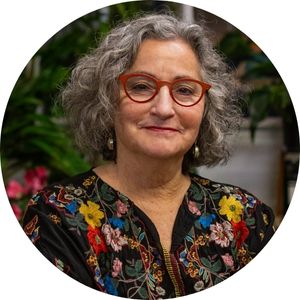 Isabelle Soule swore she would never be a nurse. The choice to pursue a degree in nursing was one of necessity— “there weren’t a lot of options for me, as a female in a very conservative community,” she says—but it ended up being a good one. “I have loved being a nurse,” she says of her over forty years in the profession.
Isabelle Soule swore she would never be a nurse. The choice to pursue a degree in nursing was one of necessity— “there weren’t a lot of options for me, as a female in a very conservative community,” she says—but it ended up being a good one. “I have loved being a nurse,” she says of her over forty years in the profession.
After graduating with a BSN from Walla Walla College, she began her journey as an RN in a neonatal intensive care unit, and her pivot to academics came at mid-career, when she shifted her focus towards maternal and newborn global health. She taught at OHSU (where she also received her MSN and PhD) for 17 years before moving to East Africa with the Clinton Foundation, where she assisted in founding a master's program in nursing at the University of Rwanda. Over the course of three years, she took on several roles in the program, including director of the neonatal specialty track and program coordinator of the Rwanda Human Resources for Health Program, a collaborative program aimed at capacity building, while educating Rwandan nurses and midwives to provide exemplary care. Upon returning to the US, she directed a program for internationally educated nurses to become RNs in the US before joining UP in 2020.
“In my 28 years as an educator, I have definitely grown in my teaching,” she says. “I feel my eldership as my previous students are mentoring my current students, and I am proud to have raised up the next generation of nurses.” Her time as a professor has seen an increased focus on the social determinants of health, health equity, and end of life care. This focus translated into her teaching Death and Suffering course for nursing students alongside members of the Theology faculty.
“I love being out in the community,” she says. “Our job as nurses is to help people stay healthy so they do not get sick and end up in the hospital.” Of all her experiences as a UP professor, however, she cites the three summers she spent in Malawi, East Africa helping students at an all-girl's boarding school alongside SONHI students as “the most amazing work I’ve done here, hands-down.”
She plans to keep her nursing license and continue to volunteer, but in retirement hopes to spend more time at her in-home pottery studio, where she’s excited to start work on a series of urns. “It’s a continuation of the same themes I’ve been interested in with end-of-life care, but just in an artistic form,” she says. She also plans to volunteer her expertise and time to resist the current presidential administration.